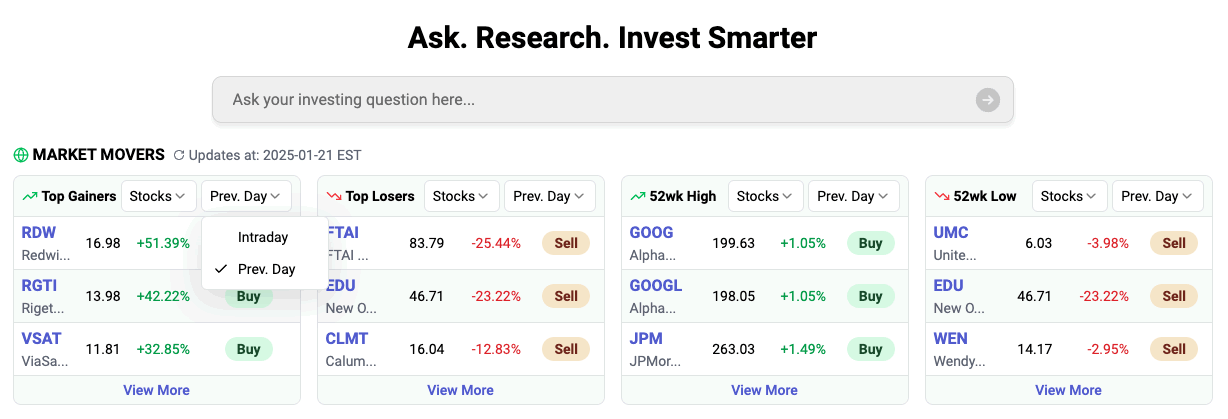MarketLens
Spotify: Evaluating Its Potential Amid Market Uncertainty
Spotify Technology S.A. (NYSE: SPOT) presents a compelling yet cautious investment opportunity. This report aims to provide a comprehensive analysis of Spotify’s current financial health, market position, and future prospects to determine whether it is a prudent buy at this juncture. Drawing from various sources, we will synthesize data, evaluate expert opinions, and identify underlying trends to offer a balanced view of Spotify’s investment potential.
Financial Performance and Market Position
Revenue and Profitability
Spotify’s financial performance has shown significant growth over recent years. In 2021, the company reported revenues of $11.73 billion, with a notable increase to $14.72 billion by 2023. This steady revenue growth underscores Spotify’s ability to expand its market presence and monetize its user base effectively. However, profitability remains a challenge. Despite strong revenue figures, Spotify reported a net income of -$40.19 million in 2021, indicating ongoing struggles to achieve consistent profitability.
User Base and Market Share
Spotify’s user base is a critical factor in its valuation. By the end of 2023, Spotify had 602 million monthly active users, a testament to its dominant position in the music streaming industry. The company holds a 30.5% global market share, making it the largest player in the sector. This extensive user base provides a solid foundation for future revenue growth, particularly through premium subscriptions, which accounted for 87% of Spotify’s revenue in 2022.
Gross Margins and Operating Costs
Spotify’s gross margins have shown improvement, reaching 27.6% in the second quarter of 2024. This increase in gross margins is a positive indicator of the company’s ability to manage costs and improve profitability. However, operating costs remain high, with significant expenditures on research and development, sales and marketing, and general administrative costs. In 2022, Spotify spent $3.9 billion on these areas, highlighting the need for continued investment to maintain its competitive edge.
Expert Opinions and Stock Performance
Analyst Ratings and Price Targets
Analyst opinions on Spotify are mixed but generally positive. The consensus rating is a strong buy, with a 1-year price target of $343.92, representing a potential upside of 16.69% from the current price of $294.74. Notably, price targets vary significantly among analysts, with some, like Redburn Atlantic, issuing a Sell rating with a target of $230, while others, such as UBS, maintain a Buy rating with a target of $400. This divergence in opinions reflects the inherent uncertainties and risks associated with Spotify’s business model and market environment.
Stock Performance and Market Capitalization
Spotify’s stock has performed well over the past year, with a 63.9% increase in its stock price. As of July 17, 2024, the stock closed at $294.7 per share, and the company’s market capitalization stood at approximately $58.7 billion. This robust stock performance is indicative of investor confidence in Spotify’s growth prospects, despite the challenges it faces in achieving consistent profitability.
Strategic Initiatives and Future Prospects
New Premium Plan
One of Spotify’s strategic initiatives is the introduction of a higher-priced premium plan for its most devoted users. This plan, which will charge users at least $5 more per month, aims to increase average revenue per user (ARPU) and enhance profitability. If successful, this initiative could significantly boost Spotify’s revenue and margins, providing a more sustainable path to profitability.
Revenue Growth and Earnings Forecast
Spotify’s revenue growth rate is forecasted at 14.06%, higher than the industry average of 7.52%. Additionally, earnings per share (EPS) are expected to increase over the next few years, with projections of $5.02 for 2024, $7.21 for 2025, and $9.58 for 2026. These optimistic forecasts suggest that Spotify has the potential to improve its financial performance and deliver value to shareholders.
Competitive Landscape
Despite its strong market position, Spotify faces intense competition from other music streaming services such as Apple Music, Amazon Music, and YouTube Music. These competitors have substantial resources and can invest heavily in content and technology to attract users. Spotify’s ability to differentiate itself through exclusive content, personalized recommendations, and superior user experience will be crucial in maintaining its competitive edge.
Risks and Considerations
Profitability Concerns
One of the primary risks associated with investing in Spotify is its ongoing struggle to achieve consistent profitability. While the company has shown improvements in gross margins and revenue growth, net income remains negative. Investors should consider the potential impact of high operating costs and the need for continued investment in content and technology on Spotify’s bottom line.
Market Volatility
The stock market is inherently volatile, and Spotify’s stock price is no exception. The significant variation in analyst price targets reflects the uncertainties and risks associated with the company’s future performance. Investors should be prepared for potential fluctuations in Spotify’s stock price and consider their risk tolerance before investing.
Regulatory and Legal Challenges
As a global company, Spotify operates in multiple jurisdictions with varying regulatory environments. Changes in copyright laws, licensing agreements, and data privacy regulations could impact Spotify’s operations and financial performance. Additionally, legal disputes with artists, record labels, and other stakeholders could pose risks to the company’s reputation and profitability.
Conclusion
In conclusion, Spotify Technology S.A. presents a cautious buy opportunity for investors. The company’s strong revenue growth, extensive user base, and strategic initiatives such as the new premium plan provide a solid foundation for future growth. However, ongoing profitability concerns, market volatility, and competitive pressures warrant a cautious approach.
Investors should weigh the potential rewards against the inherent risks and consider their investment horizon and risk tolerance. While Spotify’s stock has shown robust performance and analysts generally maintain a positive outlook, the company’s ability to achieve consistent profitability and navigate a competitive and regulatory landscape will be critical to its long-term success. As such, Spotify may be a prudent addition to a diversified investment portfolio, but investors should remain vigilant and monitor the company’s performance and market conditions closely.
Related Articles
Category
You may also like
No related articles available
Breaking News
View All →No topics available at the moment






